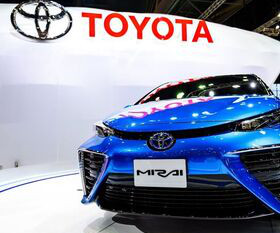Motherson Group collaborating with UBQ to bring carbon-negative thermoplastics into auto parts
Green Car Congress
NOVEMBER 25, 2020
The companies are joining efforts to implement the carbon-negative UBQ thermoplastic ( earlier post ) into auto parts manufactured by Motherson Group for the automotive industry. Adding as little as 10% UBQ GHG to a part can immediately transform it into a carbon-neutral product. Polymers typically emit 1.9



































Let's personalize your content